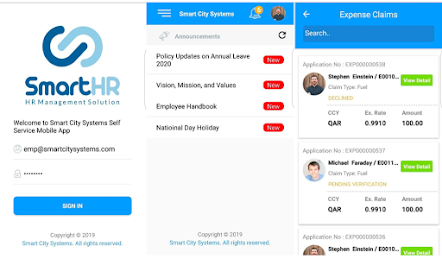Man Power Planning in UAE
The Crucial Role of Manpower Planning in Organizations
In the dynamic landscape of today's business world, where change is constant and competition is fierce, the significance of effective manpower planning cannot be overstated. Manpower planning, also known as workforce planning, plays a pivotal role in shaping the success and sustainability of an organization. This strategic process involves aligning an organization's human resources with its goals and objectives, ensuring the right people are in the right place at the right time. Let's delve into the importance of manpower planning and how it contributes to the overall success of an organization.
Strategic Alignment:
Manpower planning is the bridge that connects an organization's strategic goals with its human resources. By understanding the business objectives, leaders can identify the skills and talents needed to achieve them. This alignment ensures that the workforce is well-equipped to contribute effectively to the organization's success.
Optimizing Resource Utilization:
Efficient manpower planning helps in avoiding underutilization or overutilization of resources. With a clear understanding of workforce requirements, organizations can optimize their human capital, preventing unnecessary labor costs and ensuring that each employee's skills are utilized to their maximum potential.
Adaptability to Change:
In a rapidly evolving business environment, the ability to adapt to change is crucial. Manpower planning enables organizations to anticipate future staffing needs and prepare for changes in technology, market conditions, or industry trends. This foresight allows organizations to stay agile and responsive in the face of uncertainty.
Talent Acquisition and Retention:
Identifying and attracting top talent is a competitive advantage for any organization. Manpower planning helps in identifying the skills and competencies required for current and future roles, facilitating targeted recruitment efforts. Additionally, by understanding the career aspirations of employees, organizations can implement strategies for talent retention and professional development.
Cost Control:
Manpower planning contributes to cost control by aligning staffing levels with business requirements. This prevents unnecessary expenses associated with overstaffing or recruitment gaps. Moreover, a well-planned workforce helps in reducing turnover costs, as employees are more likely to stay engaged and satisfied when their skills are appropriately utilized.
Enhanced Productivity and Performance:
When employees are aligned with their roles and responsibilities, job satisfaction and productivity soar. Manpower planning ensures that each team member possesses the necessary skills for their position, fostering a culture of excellence and contributing to overall organizational performance.
Risk Mitigation:
Manpower planning serves as a risk mitigation strategy by identifying potential gaps in skills and competencies. By addressing these gaps proactively, organizations can reduce the risks associated with talent shortages, turnover, and skills mismatches.
In the ever-evolving landscape of business, where success is contingent on adaptability and strategic foresight, manpower planning in Dubai emerges as a cornerstone for organizational excellence. By aligning human resources with strategic objectives, optimizing resource utilization, and fostering a culture of adaptability and performance, organizations can navigate the challenges of the modern business environment and secure a path to sustained success. As the saying goes, "People are an organization's greatest asset," and effective manpower planning ensures that this asset is harnessed to its fullest potential.



Comments
Post a Comment